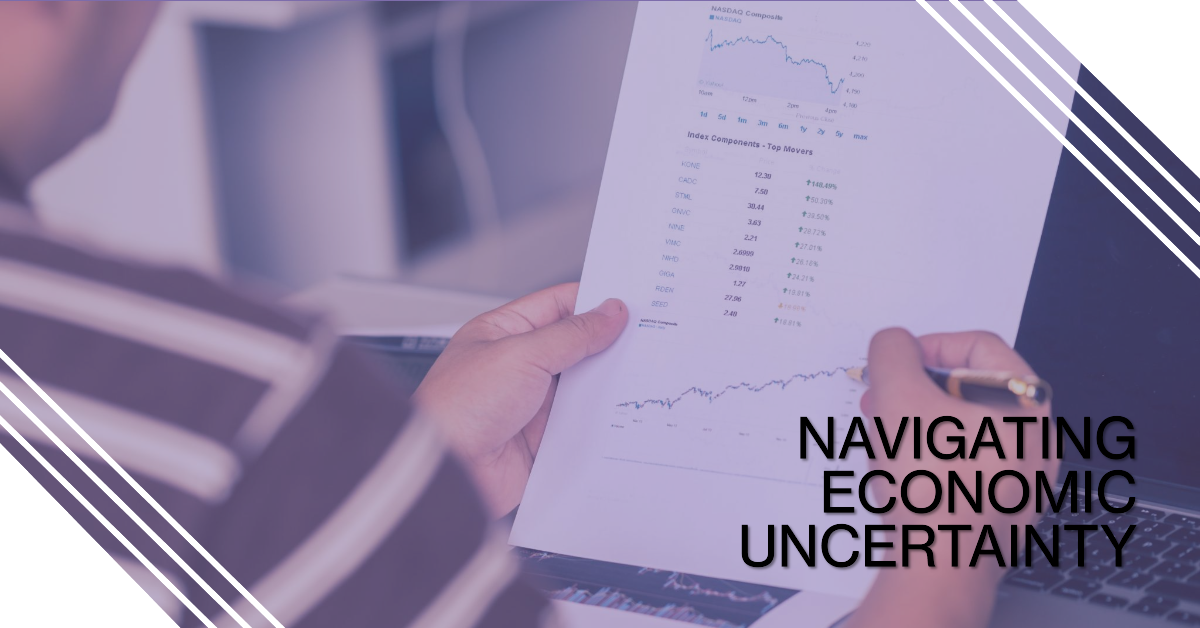Economic uncertainty is an inevitable aspect of the business landscape, presenting challenges that can significantly impact operations, profitability, and strategic planning. Whether caused by market fluctuations, geopolitical events, or unforeseen crises like pandemics, economic instability demands a proactive and adaptive approach from business leaders. This article explores strategies to navigate economic uncertainty effectively, ensuring business resilience and long-term success.
Diversify Revenue Streams
One of the most effective ways to mitigate the risks associated with economic uncertainty is to diversify revenue streams. Relying on a single product, service, or market can expose a business to significant risk if that area is adversely affected. By expanding into new markets, developing new products, or offering additional services, businesses can create multiple revenue sources, reducing dependence on any single stream.
Diversification not only spreads risk but also opens up new growth opportunities. It enables businesses to tap into different customer bases and adapt to changing market conditions more easily. For instance, a company that primarily sells physical products might consider developing digital products or services to reach a broader audience and reduce the impact of supply chain disruptions.
- Holly Darani, the Content Head at UNAGI Scooters
Focus on Core Competencies
During periods of economic uncertainty, it’s essential for businesses to focus on their core competencies—the areas where they excel and provide the most value to customers. By honing in on what they do best, businesses can streamline operations, improve efficiency, and enhance their competitive advantage.
Focusing on core competencies also means evaluating and potentially divesting non-core activities that may be draining resources. This strategic refocusing allows businesses to allocate their resources more effectively, ensuring they are well-positioned to meet customer needs and capitalize on their strengths.
- Adam Martin, Managing Director at Nova Acoustics
Enhance Customer Relationships
Strong customer relationships are a cornerstone of business stability and growth, especially during uncertain economic times. Businesses should prioritize maintaining and strengthening these relationships by providing exceptional customer service, staying responsive to customer needs, and offering value-added solutions.
Understanding and anticipating customer needs can lead to increased loyalty and repeat business, even during challenging economic periods. Businesses should actively seek customer feedback, stay engaged through regular communication, and be willing to adapt their offerings to better meet customer demands.
Embrace Flexibility and Innovation
Flexibility and innovation are critical attributes for businesses navigating economic uncertainty. Companies that can quickly adapt to changing conditions and innovate in response to new challenges are more likely to thrive. This might involve pivoting business models, adopting new technologies, or exploring alternative ways to deliver products and services.
Encouraging a culture of innovation within the organization can lead to creative solutions that drive growth and resilience. Businesses should empower employees to experiment with new ideas, embrace calculated risks, and continuously seek ways to improve processes and offerings.
Monitor Economic Indicators
Staying informed about economic trends and indicators is essential for anticipating and responding to uncertainty. Business leaders should regularly monitor key economic indicators such as GDP growth, unemployment rates, consumer confidence, and industry-specific metrics. Understanding these trends can provide valuable insights into potential challenges and opportunities.
By keeping a close eye on economic indicators, businesses can make more informed strategic decisions. This might include adjusting inventory levels, revising sales forecasts, or exploring new markets. Proactive monitoring allows businesses to stay ahead of economic shifts and respond swiftly to changing conditions.
Develop Contingency Plans
Having well-developed contingency plans is crucial for navigating economic uncertainty. These plans should outline potential scenarios and the corresponding actions the business will take in response. Contingency planning helps businesses prepare for various outcomes, ensuring they can maintain operations and minimize disruptions.
Key elements of a contingency plan include identifying critical business functions, establishing communication protocols, and outlining steps to secure financial resources. Regularly reviewing and updating these plans ensures they remain relevant and effective in the face of new challenges.
Invest in Employee Development
Investing in employee development is a strategic move that pays dividends during economic uncertainty. A skilled and adaptable workforce is better equipped to handle changing conditions and contribute to the business’s success. Providing training and development opportunities not only enhances employees’ capabilities but also boosts morale and engagement.
Businesses should focus on developing skills that are critical to their core competencies and future growth. This might include leadership training, technical skills, or cross-functional knowledge. A well-trained workforce is an invaluable asset that can drive innovation and efficiency.
Conclusion
Navigating economic uncertainty requires a proactive and multifaceted approach. By diversifying revenue streams, maintaining strong cash reserves, focusing on core competencies, enhancing customer relationships, embracing flexibility and innovation, monitoring economic indicators, developing contingency plans, and investing in employee development, businesses can build resilience and thrive even in challenging times. These strategies provide a solid foundation for not only surviving economic uncertainty but also emerging stronger and more competitive.





